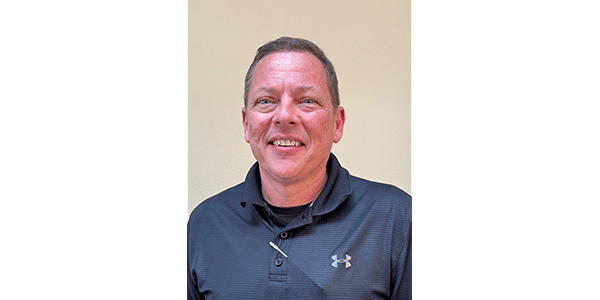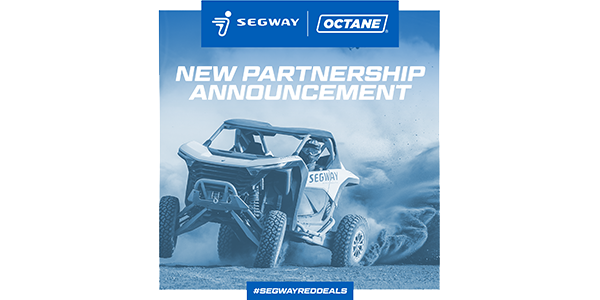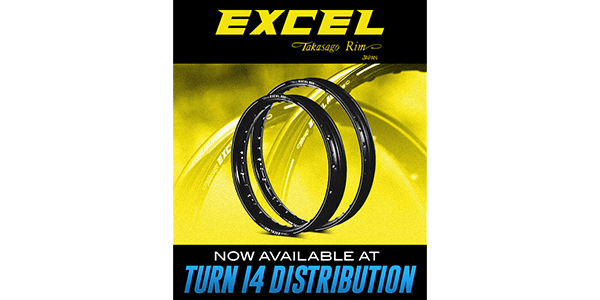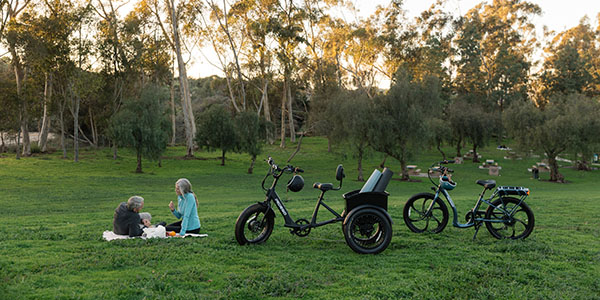No, not committed in the way Jack Nicholson was in
the timeless flick One Flew Over the Cuckoo’s Nest,
but rather do you perform consistently with your
publicly stated beliefs and positions … you know, are you
committed. Research says you are and here’s why.
What do you call a person who says one thing and does
another? Hypocrite? Liar? Flip-flopper? Scatterbrained?
Worse? I asked this question once in a dealer workshop and
the response I received was an expletive. Use your imagination.
When someone makes a public statement they are really
making a commitment — they are publicly stating their
values and beliefs. And we as humans want to perform
consistently with our publicly stated beliefs. Why? Because
we don’t want to think poorly of our character — you
know, saying one thing and doing another. It is a firmly
entrenched element of human behavior.
Noted sociologist Robert Cialdini suggests there may be
two reasons for this compelling bit of the human psyche.
First off, as humans living in a very complex, post-modern
world, we need short cuts to survive. If we had to analyze
every situation in detail we’d never get though the day.
Once we’ve made a public statement or commitment on a
matter, we respond automatically and consistently with
that statement. It helps us get on to the next issue.
Secondly, it gives us haven from those concepts which
challenge our existing notions. If we have taken a stand on
an issue, we sometimes mentally contort our behaviors to
conform to our previously stated position, even in the face
of obvious, factual logic to the contrary.
Need proof of how powerful public commitment can be?
Proof is in the pudding, as my grandmother used to say.
A psychologist named Thomas Moriarty conducted an
interesting experiment: he sent a research assistant to a
public beach. Once at the beach he would spread out his
blanket, put down his belongings including a nice portable
radio. After a few moments, the research assistant would get
up and walk away, leaving his things unattended. Moments
later another research assistant would come by and take
the radio which was obviously not his property. They
conducted this experiment some 20 times. Only four
people out of 20 said anything to the "thief."
Moriarty then conducted the experiment another 20
times, but in this go-round he changed one thing: This time
the research assistant would turn to his neighboring beachgoer
and ask, "Would you watch my stuff for a minute?"
before leaving his belongings.
Of course when faced with such a seemingly innocuous
request in the face of polite social interaction, who wouldn’t
say sure? And that’s exactly what all 20 of the research
subjects did.
This time when the thief came and started to make off with the
radio, 19 out of 20 people either verbally or physically stopped
the would-be thief! Why? They were driven by their desire to
perform consistently with their stated public commitment.
So how can public commitment help you in your dealership?
Cialdini reports another powerful example of the
"commitment complex." Chicago restaurateur Gordon
Sinclair had a problem: people were making restaurant
reservations over the phone and not keeping them. This can
be disastrous for a restaurant and the reasons are plentiful.
When someone makes a reservation and doesn’t keep it,
that’s lost business. And there are other complications.
Perhaps food was purchased based on seating reservations,
or the restaurant may have turned away other business for
that same time slot … not to mention the marketing
component of other customers seeing a restaurant that is
perhaps not as full as it should be. But the biggest impact,
in my opinion, is that the table seating is perishable, just
like your tech’s time in the service department. Once
Tuesday evening, July 25, 2006 at 8 p.m. has come and
gone, it’s gone forever. So, as you can see, it is a big deal.
When people would call Sinclair’s, the hostess would end
her conversation by saying, "Please call if you can’t make
it." which didn’t work all that well. Then they added just
two words and dramatically reduced the number of "no
shows" from 34% to 10% almost instantly. What were
those two magic words? Will you?
It’s that simple. Now the person taking the reservation
ends the conversation with the request, "Will you please
call if you can’t make it?" And then she waits for the
response. Of course it’s a simple request, so who wouldn’t
respond in the affirmative? When they do, they’ve made a
public, active and voluntary commitment. And guess
what? They keep that commitment!
So how can you be sure you are effectively using the
concept of public commitment to help your business?
Well, for one thing, if you need to get customers to do
something, you can use an adapted form of Sinclair’s
reservation approach. For example, most manufacturers
have some form of customer satisfaction index survey that
they send customers after they purchase a motorcycle.
Dealers are always on the hunt to improve those scores since
good things happen for good CSI scores. Using the will you
approach is probably the easiest way to raise those scores.
Let me explain. Who sends in the customer satisfaction
survey? The customer? Yep, it is usually the customer who
hates you! Why? Well, that customer you did a great job
for has the best intentions to send the form in, but often
life gets in the way, and they never get around to doing it.
Meanwhile, that disgruntled customer has been
practically hovering at the mailbox like an 11-year-old waiting for a
birthday card from
his aunt, because
he wants to rake
you over the coals.
How do you use
public commitment
to help avoid this
imbalance in
responses? Instead
of saying to your
customers, "When
you get your survey
please send it in."
Try saying, "Will
you promise me
you’ll send it in?"
and then wait for
the response. You
are almost
guaranteed to get more forms
returned and thereby counterbalance
the negative surveys.
That is the power of a public
commitment and how to effectively
make it work for your dealership.
You also need to be aware of how
public commitment statements can
hurt you. Often when salespeople
are working with customers they
may ask for more information. Let’s
say a customer has told you that
they want to pay cash for their
motorcycle purchase rather than
take you up on your offer for
dealership financing.
Some experts will tell you to
probe for more information. Like
asking why the customer wants to
pay cash. They’ll tell you to do this
so that you may zero in on the
customer’s motivation or concern.
In my opinion this is bad advice.
Why doesn’t conventional wisdom
work here? If you ask a customer,
"Why do you want to pay cash?" That
customer will go on a tirade telling
you why they never finance anything.
You’ll get everything from a 30-second
economics lesson about interest rates
and a monthly payment to the pay
cash for everything rule were the
dying words of a trusted relative.
Why does this
radically decrease
the likelihood of
success? Well, this
person has just
publicly stated why
they don’t want to
do something. The
probability that
they will change
their mind has now
gone down to nil. In
this situation it’s a
case of don’t ask,
don’t tell.
Instead, let them
change their mind in
private. If you have
extracted the public
commitment from
them, you are just risking the deal.
Use your creativity. Are there
other places in your exchange with
customers, or if you are in
management, interactions with team
members where you can use the
rule of public commitment to help
encourage desired behavior? Again,
the examples are almost too
numerous to mention.
The whole idea in business (and life)
is to radically increase your chances
for success. Take a step back, look
at some of the basics of human
behavior and identify your
opportunities, and then e-mail me
and let me know how you do. I’ll
assemble your successes and publish
them in a future piece.
Pedego Unveils 2024 Electric Bike Models
The models are the Moto, Cargo and Fate Tire Trike.
Pedego has unveiled the latest additions to its lineup of electric bikes. The three groundbreaking additions — Moto, Cargo and Fat Tire Trike — set a new standard in safety, quality, performance and innovation within the e-bike industry.
“This is officially the next generation of electric bicycles,” said Pedego CEO Brian Stech. “Built to exceed the industry’s highest standards, each bike is outfitted with cutting-edge technology available only to Pedego customers, offering riders industry-leading safety, increased range, numerous customization options and ultimately a superior riding experience for all.”
Race Winning Brands Transitioning to Unilateral Retail Pricing Policy
RWB aims to preserve the quality and reputation of its products.

Parts Unlimited Welcomes New South Central Region Sales Rep
Joby Windmiller comes with several years of powersports industry experience.

Honda to Support MotoAmerica Mini Cup
The youth-focused championship is open to riders of Groms and some CRF-F models.

The 2025 KTM XC Range
Ready to take on cross-country duties.

Other Posts
Zero Motorcycles Launches Tesla Tap Mini: the Key to Expanded Charging Options
The accessory expands rider access to more than 40,000 additional charging destinations across the country.

Turn 14 Distribution Adds Gaerne to the Line Card
Gaerne is an Italian motorcycle footwear brand.

Royal Enfield Introduces Global Rentals and Tours
The rental program extends to 60-plus destinations.

Segway Powersports and Octane Shift Gears With Strategic Financing Partnership
Effective, April 1, 2024, prime and non-prime consumers are eligible for financing on Segway’s entire range.







